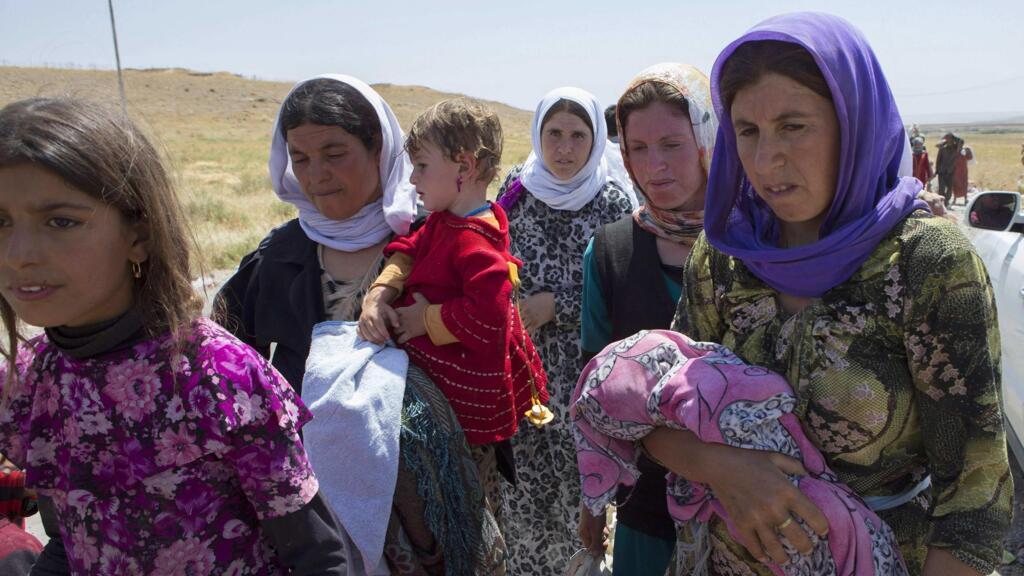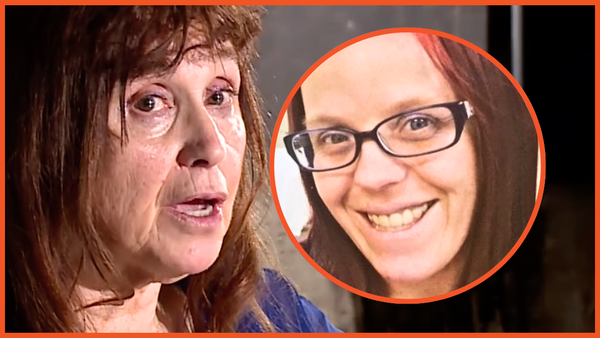
A French woman accused of holding a Yazidi teenager in slavery in Syria in 2015 will stand trial in Paris on charges of genocide.
Sonia Mejri, 36, will be the first French citizen ever tried for genocide and the first French returnee from Syria to face this charge in connection with the Islamic State (IS) group.
The crime carries a maximum sentence of life imprisonment.
Mejri, a former wife of an IS commander, also faces charges of complicity in crimes against humanity and other terrorist offences. She will appear in custody before the special assize court in Paris, which has a panel of professional judges instead of a jury, on a date still to be set.
“The innocence of my client will be recognised by the judges,” her lawyer Nabil Boudi said ahead of the trial.
Accusations of enslavement
An anti-terrorism investigating judge ordered the trial in September 2024 for Mejri and her then husband, Abdelnasser Benyoucef, accusing them of enslaving a 15-year-old Yazidi girl in Syria in the spring of 2015.
The magistrate said Benyoucef “knew that by acquiring” the teenager and subjecting her to confinement, repeated rapes and severe deprivation, “he was participating in the attack directed by IS against the Yazidi community”.
Mejri was described as the “guarantor of the confinement” of the girl. She reportedly held the apartment key and carried a weapon to prevent her from escaping.
Prosecutors accused her of “serious attacks on the physical and psychological integrity” of the teenager, who was forced to live under “conditions of existence likely to bring about the destruction” of her community.
Former wife of IS commander to stand trial in France on Yazidi genocide charges
'Coordinated Plan'
In January the Paris Court of Appeal partly overturned the referral, saying there had to be multiple victims for the crime to qualify as genocide.
“The appeal judges could not agree on the charges, which demonstrates the fragility and weakness of the prosecution,” Boudi said.
But in May the Court of Cassation, France’s highest judicial authority, ruled that genocide charges can be brought even if only one person is targeted, provided the act forms part of “a coordinated plan aimed at the group’s total or partial destruction”.
The court approved the genocide proceedings on 1 October.
The lost childhood of traumatised Yazidi children abducted by IS
Victim’s testimony
Sexual violence was used by IS as a weapon to break Yazidi resistance and spread fear, including through the creation of slave markets.
The victim’s testimony is central to the case. Her lawyer, Romain Ruiz, declined to comment.
The young woman said she was held captive for more than a month in spring 2015 in Syria and could not drink, eat or bathe without Mejri’s permission. She accused Mejri of assaulting her and of knowing that her husband raped her daily.
Her account matches evidence gathered by human rights organisations that have documented IS’s use of sexual slavery and the creation of a “war booty department”.
Defence and civil parties
Mejri has denied wrongdoing in relation to the Yazidi girl, telling investigators that her ex-husband was the “owner” and that she had “no rights” over her.
“The defence lodged multiple appeals. Licra is pleased that this genocide trial... can finally take place,” said Ilana Soskin, lawyer for the French anti-racism group.
“The charges are neither weak nor fragile; they are well-founded, factual and legally sound,” added Inès Davau, lawyer for the NGO Free Yezidi Foundation. She said that given the “persistent impunity”, it was "time for justice to be served”.
Benyoucef, who has been the subject of an arrest warrant and is presumed dead since 2016, is expected to be tried in absentia for genocide, crimes against humanity and terrorist offences.
(with AFP)







